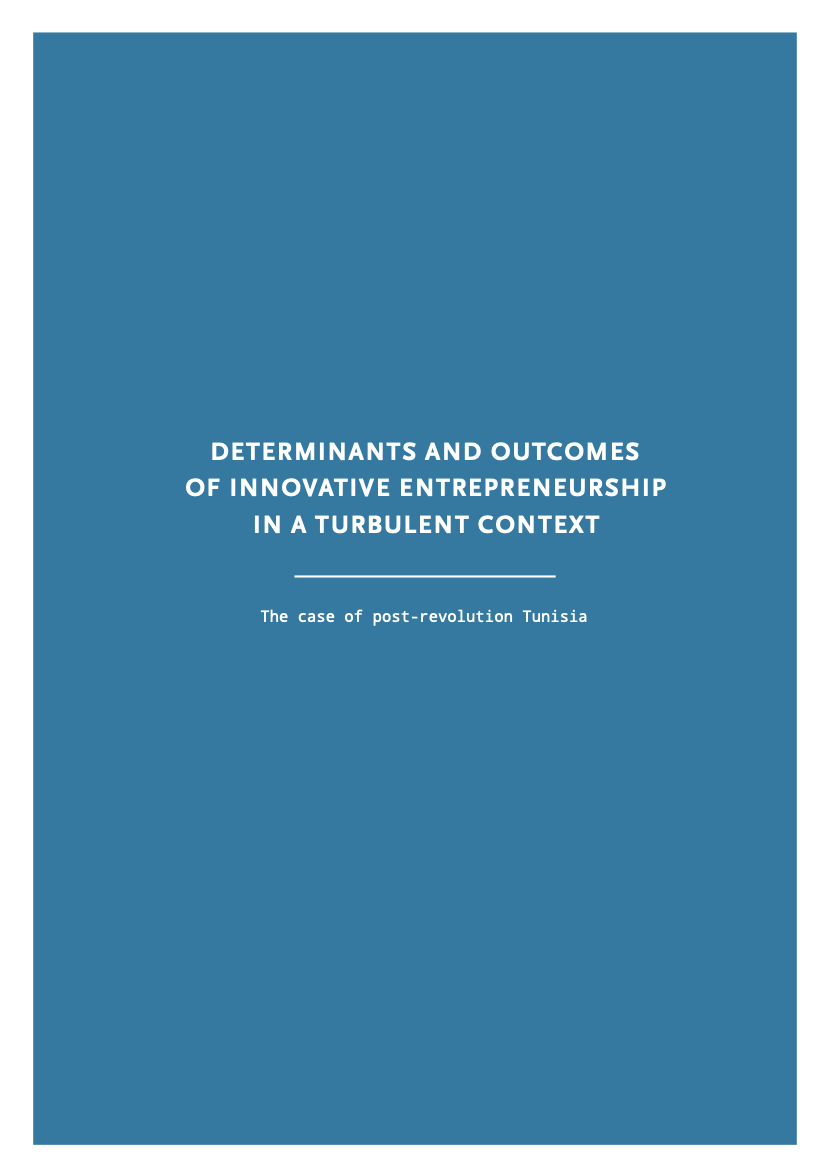Amidst rising recognition of entrepreneurship’s potential for sustainable development, governments and practitioners have been adopting Silicon-Valley-like approaches to fostering innovation ecosystems and high-growth technology startups. However, the motivational factors behind the engagement in such entrepreneurial activity and the suitability of those strategies as context-relevant, holistic, and long-term solutions for challenges faced by transitional and turbulent warrant further investigation. This paper qualitatively explores the determinants (and outcomes) of entrepreneurial activity in Tunisia following the aftermath of the 2011 uprisings that overthrew the previous regime and the subsequent establishment of national innovation policies. The study models entrepreneurship determinants as a complex interplay of individual and environmental motivational factors guided be the eclectic theory of entrepreneurship and the self-determination theory. Semi-structured interviews with entrepreneurs, ecosystem leaders, and state actors, following an abductive analysis approach, indicate that startups are highly driven by a desire for self-realization and personal development, facilitated by regulatory structures, entrepreneurship education, socioeconomic conditions, and community support. Nevertheless, it is observed that this entrepreneurial model may be inaccessible to the majority, a contributor to the exclusion of vulnerable groups, and an exacerbator of inequality and social division in an already fragmented society. A detailed discussion on those findings and implications for scholarship and practice is provided, urging focus on the interplay of governance, local
context, and inclusive innovation.



